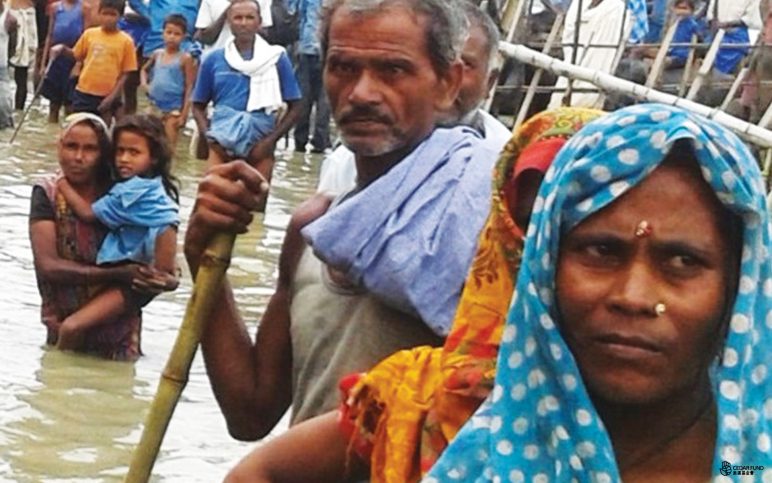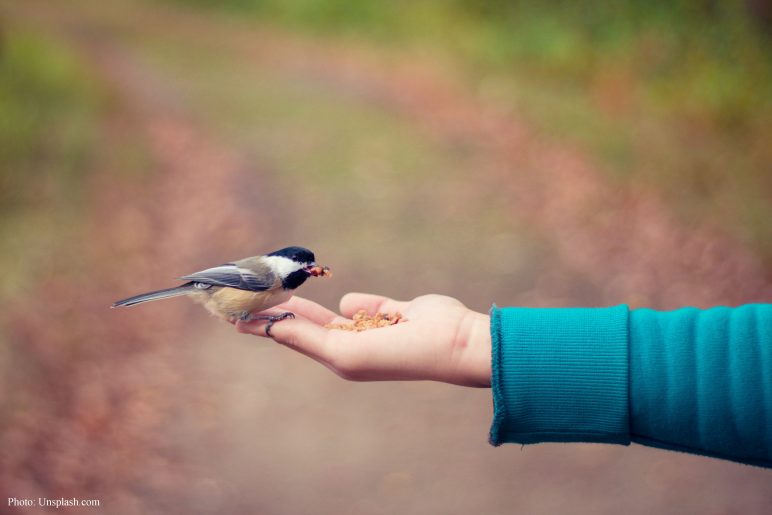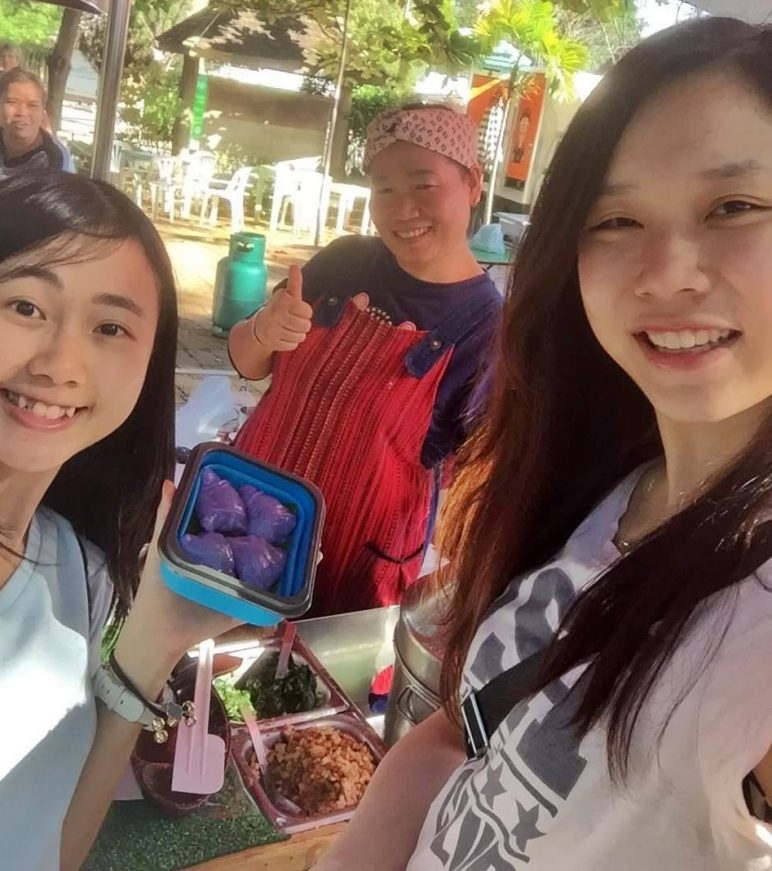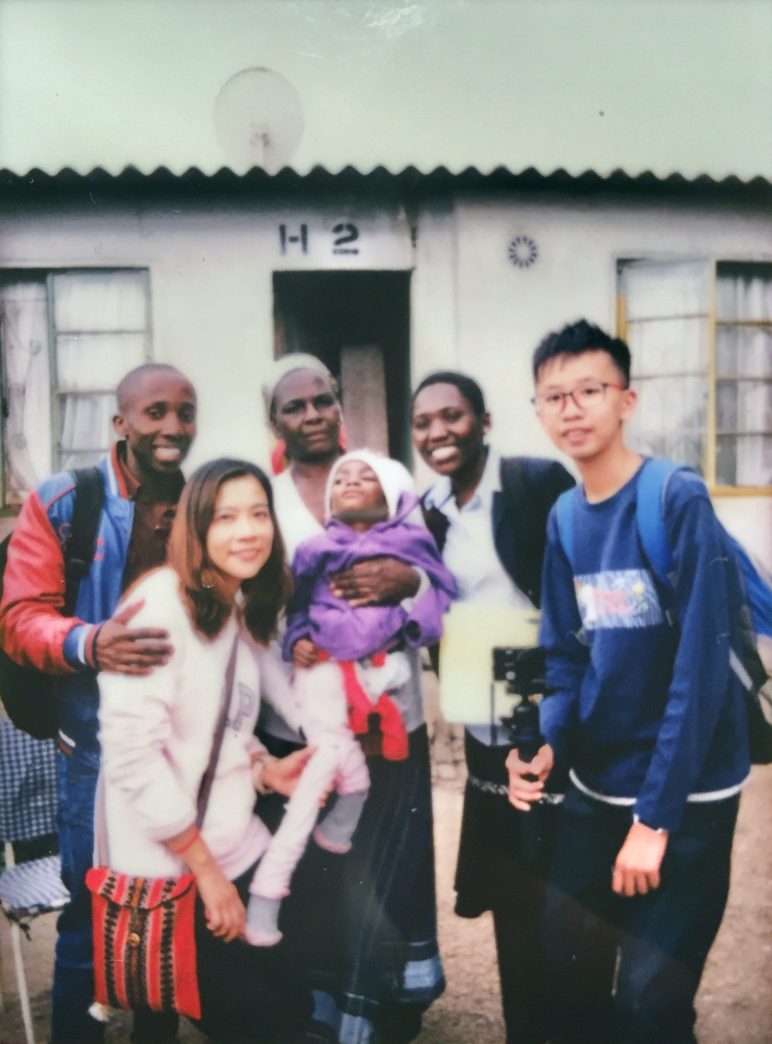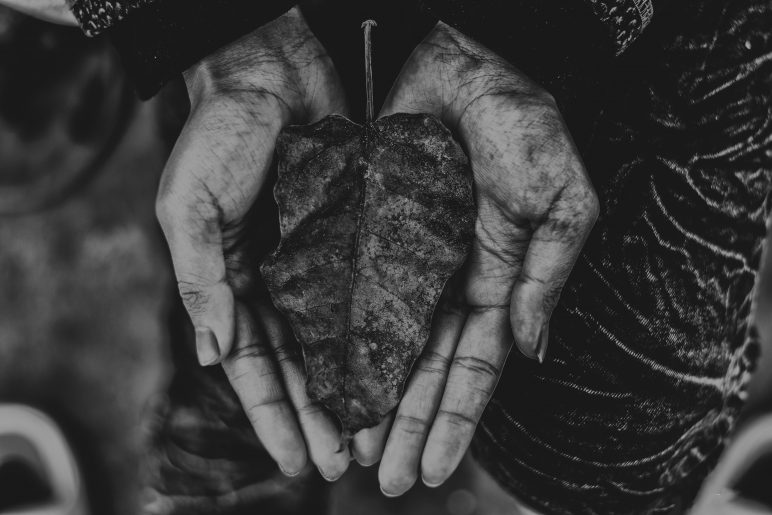Angela (second from the left), Kimberly (centre) and her grandmother
[“SHARE” JUL – SEP 2019 ] TAKING ACTION
Written by: Jady Sit (Communications Officer)
“Snap!” A colourful image emerged slowly from the blur in an instant photo. A grandmother from an impoverished village in Zimbabwe saw herself and her granddaughter, Kimberly, in the picture and broke into a smile, which was rarely seen on her face. Suffering from AIDS, Kimberly was physically disabled. She was unable to speak or sit up, and had been abandoned by her mother when she was 3 years old. Since then, she had been cared for by her grandmother, who sold vegetables in front of their hut. Owing to her disability, Kimberly was sick very often. Since she did not have a birth certificate, every time her grandmother took her to the hospital, they were either refused treatment or had to pay very expensive medical fees. Nevertheless, this grandmother never felt despair. She gritted her teeth and bore it. The smile on her face when she was holding the photo clearly showed the power of love.
The person who asked Kimberly and her grandmother to take this photo was Angela from Hong Kong. Angela had gone to Zimbabwe to visit the beneficiaries of CEDAR with staff from CEDAR and other brothers and sisters in Christ. She was deeply moved by the story of grandmother and Kimberly after meeting with them. Every day, Kimberly laid on the bed in that dark little hut and fought for her life. Her grandmother prayed twice daily for her because she believed that Kimberly was the good and perfect will of God. She hoped that one day her granddaughter could study and play like other healthy children. The pair’s perseverance and hope won Angela’s respect – she decided to respond to their practical needs by sponsoring their living expenses on a regular basis.
Through the effort of our partner in Zimbabwe, Trinity Project, we finally located Kimberly’s mother. We helped Kimberly obtain her birth certificate and apply for social welfare benefits from government departments. Grandmother and Kimberly’s story even caught the media’s attention in Zimbabwe, and some of them called for society to advocate the rights of underprivileged children. Eventually, the hospital voided the pair’s debts, so Kimberly’s grandmother no longer had to worry about paying for large medical bills. And with birth certificate, Kimberly could even enjoy free medical treatment.
This one photograph records the deep love between Kimberly and her grandmother. Unfortunately, it was probably the pair’s last photo. Kimberly had gone to heaven on 8th May this year. With the grace of God and the unconditional love of her grandmother, Kimberly bravely lived until the last moment.
|
Epilogue
When this article was being written, Kimberly was still in the intensive care unit. Angela told me that she was very worried, but believed that everything was in the Hands of God. Kimberly passed away not long afterwards.
Angela reflected on her encounter with Kimberly, and she was convinced that even though sometimes things can look hopeless and futile, it is not so in God. Let me share a Bible verse as an encouragement to us all: “ and if you spend yourselves in behalf of the hungry and satisfy the needs of the oppressed, then your light will rise in the darkness, and your night will become like the noonday.” (Isaiah 58:10) |
Back To Newsletter>SHARE






